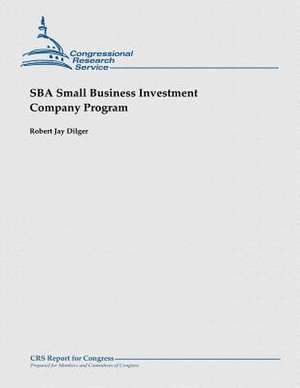Sba Small Business Investment Company Program
Autor Robert Jay Dilgeren Limba Engleză Paperback
| Toate formatele și edițiile | Preț | Express |
|---|---|---|
| Paperback (2) | 94.66 lei 3-5 săpt. | |
| CREATESPACE – | 94.66 lei 3-5 săpt. | |
| CREATESPACE – | 100.81 lei 3-5 săpt. |
Preț: 94.66 lei
Nou
Puncte Express: 142
Preț estimativ în valută:
18.11€ • 18.96$ • 14.99£
18.11€ • 18.96$ • 14.99£
Carte disponibilă
Livrare economică 17-31 martie
Preluare comenzi: 021 569.72.76
Specificații
ISBN-13: 9781481914284
ISBN-10: 1481914286
Pagini: 44
Dimensiuni: 216 x 279 x 2 mm
Greutate: 0.13 kg
Editura: CREATESPACE
ISBN-10: 1481914286
Pagini: 44
Dimensiuni: 216 x 279 x 2 mm
Greutate: 0.13 kg
Editura: CREATESPACE
